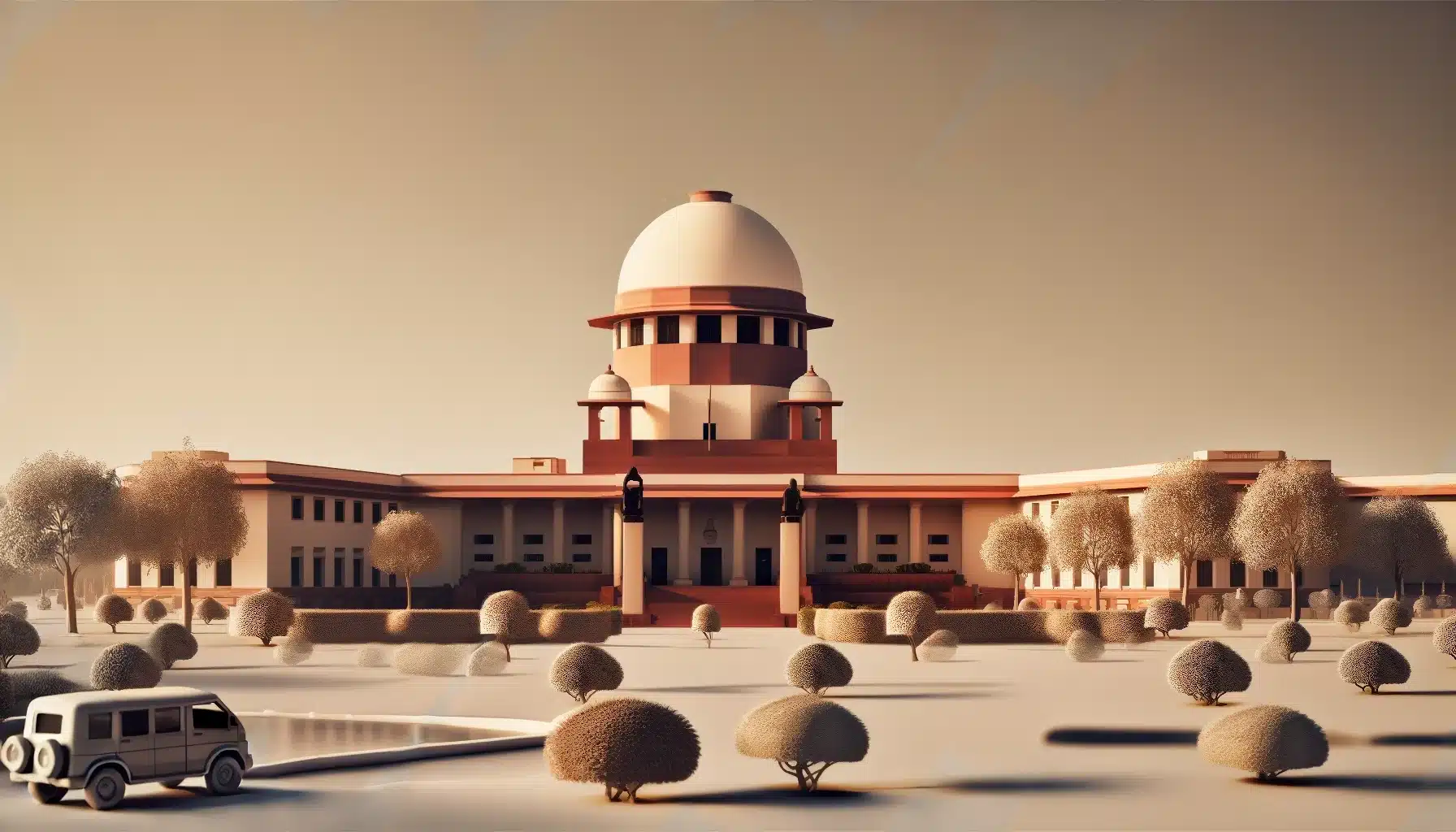On August 20, 2024, the Supreme Court of India ruled that mere insult or intimidation of an SC or ST member does not constitute an offense under the SC/ST Act unless there is a clear intention to humiliate based on caste. This decision granted anticipatory bail to Shajan Skaria, overturning a previo

On August 20, 2024, the Supreme Court of India delivered a significant ruling on the interpretation of the SC and ST (Prevention of Atrocities) Act, 1989. The Court held that mere insult or intimidation of a Scheduled Caste (SC) or Scheduled Tribe (ST) member does not automatically constitute an offense under the Act unless the accused had a specific intention to humiliate based on caste identity.
This judgment was delivered by a bench comprising Justice JB Pardiwala and Justice Manoj Misra while granting anticipatory bail to Shajan Skaria, the editor of the Malayalam YouTube news channel ‘Marunadan Malayalee’. Skaria faced allegations of making derogatory remarks against MLA PV Sreenijin regarding alleged maladministration of a Sports Hostel. The Supreme Court’s decision overturned a June 2023 judgment by the Kerala High Court that had denied Skaria bail. The Court emphasized that the intent to humiliate must be linked to caste identity for an offense under the SC/ST Act.
Legal Principles and Court’s Observations:
- Intent to Humiliate: The Court held that for an offense under the SC/ST Act, 1989, there must be an intention to humiliate based on caste identity.
- “All insults or intimidations to a member of the Scheduled Caste or Scheduled Tribe will not amount to an offense under the Act, 1989 unless such insult or intimidation is on the ground that the victim belongs to Scheduled Caste or Scheduled Tribe.”
- Section 3(1)(r) Requirements: The phrase “intent to humiliate” is closely linked to the caste identity of the victim. Not every insult or intimidation will qualify if it does not involve caste-based humiliation.
- “The words ‘with intent to humiliate’ as they appear in the text of Section 3(1)(r) of the Act, 1989 are inextricably linked to the caste identity of the person who is subjected to intentional insult or intimidation.”
- “It is only in those cases where the intentional insult or intimidation takes place either due to the prevailing practice of untouchability or to reinforce the historically entrenched ideas like the superiority of the ‘upper castes’ over the ‘lower castes/untouchables’ that it could be said to be an insult or intimidation of the type envisaged by the Act, 1989.”
Examination of Evidence:
- The Court examined whether the FIR or complaint disclosed any offense under Section 3(1)(r). The complainant and the State argued that Skaria’s statements could be considered under Sections 3(1)(r) and 3(1)(u) of the Act.
- The Court found no prima facie evidence that the allegations were made solely due to Sreenijin’s caste, it said,“There was nothing in the transcript of the uploaded video to indicate even prima facie that the allegations were made solely because the complainant belonged to a SC.”
- The Court noted that the statements appeared to stem from personal animosity, not caste-based discrimination.
Purpose and Scope of the SC/ST Act:
- Purpose of the Act: The SC/ST Act aims to provide stringent penalties for offenses targeting individuals due to their caste status.
- “The object behind the Act is to provide stringent provisions for punishment of offenses targeted towards persons belonging to the SC/ST communities for the reason of their caste status.”
- Misuse Prevention: The Court clarified that the Act does not apply to all instances of intentional insult or intimidation unless motivated by caste.
- “It is not the purport of the Act, 1989 that every act of intentional insult or intimidation meted by a person who is not a member of a Scheduled Caste or Scheduled Tribe to a person who belongs to a Scheduled Caste or Scheduled Tribe would attract Section 3(1)(r) of the Act, 1989 merely because it is committed against a person who happens to be a member of a Scheduled Caste or Scheduled Tribe.”
Judgment Summary:
- Conditions for Offense: To establish an offense under Section 3(1)(r), the insult or intimidation must be due to entrenched social practices like untouchability or notions of caste superiority.
- “Only in cases where the intentional insult or intimidation occurs due to entrenched social practices, like untouchability or notions of caste superiority, can it be said to constitute the type of insult or intimidation envisioned by the Act.”
- Court’s Conclusion: The Court concluded that not all insults directed at SC/ST members are covered by the Act unless motivated by caste.
- “The expression ‘intent to humiliate’ as it appears in Section 3(1)(r) of the Act, 1989 must necessarily be construed in the larger context in which the concept of humiliation of the marginalized groups has been understood by various scholars.”
Click to read: Shajan Skaria v. State of Kerala Crl.A. No. 002622/2024





